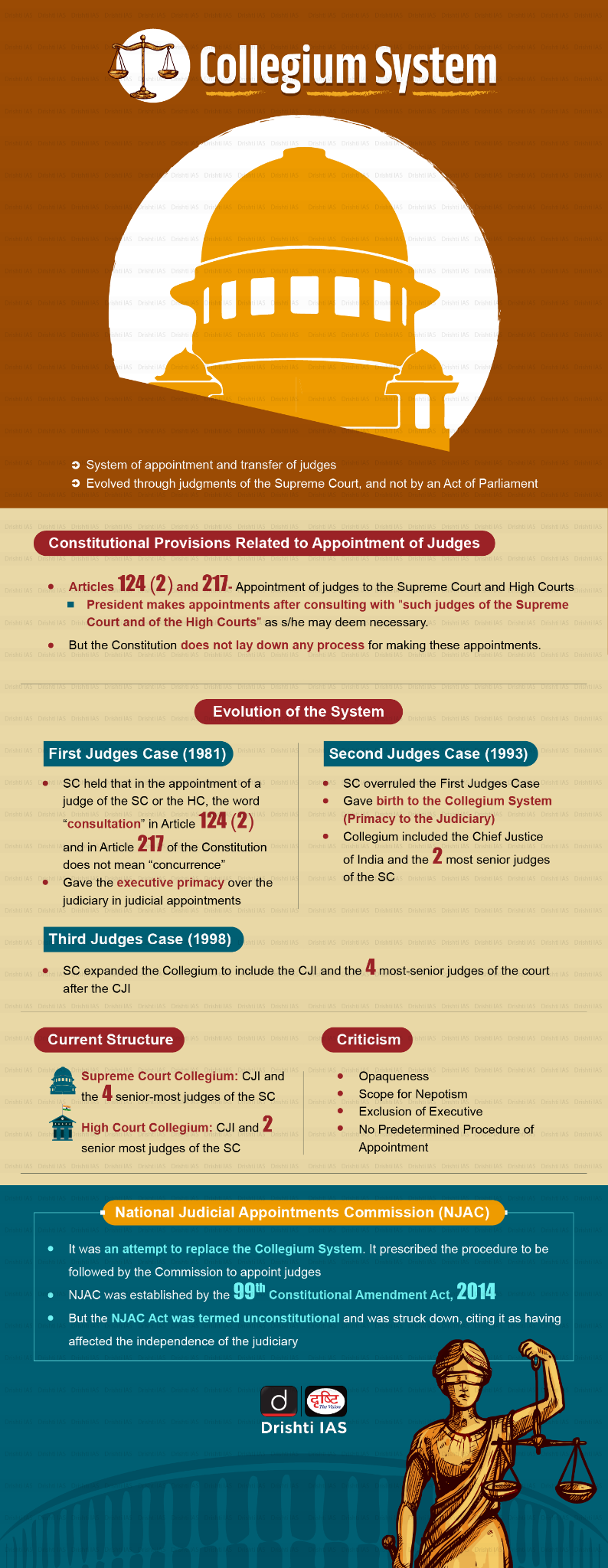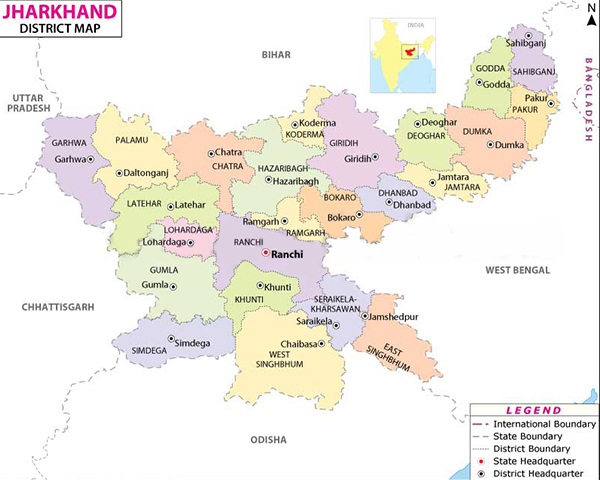Jharkhand
Chief Justice Appointed for Jharkhand High Court
- 25 Jul 2025
- 6 min read
Why in News?
Justice Tarlok Singh Chauhan took the oath of office as Chief Justice of the Jharkhand High Court in a ceremony held at the Raj Bhavan in Ranchi, following the recommendation of the Supreme Court Collegium.
- Justice Chauhan was administered the oath by Governor Santosh Kumar Gangwar (as per Article 219).
High Courts in India
- Position: High Court operates below the Supreme Court and above subordinate courts in India's judicial system.
- The High Court is the highest judicial body in the state (total 25 High Courts in India).
- Establishment:
- 1862: High Courts were established in Calcutta, Bombay, and Madras.
- 1866: A fourth High Court was established at Allahabad.
- Over time, each province in British India had its own High Court.
- Post-Independence: After 1950, the existing High Court for a province became the High Court for the corresponding state.
- Constitutional Provisions:
- High Court for each State: The Constitution of India provides for a High Court for each state (Article 214).
- Article 231 provides that the Parliament may by law establish a common High Court for two or more States or for two or more States and a Union Territory.
- Jurisdiction: Territorial jurisdiction is co-terminus with the state’s territory (or a common High Court’s jurisdiction is co-terminus with the territories of the concerned states and Union Territories).
- Articles 214 to 231: These deal with the organization, independence, jurisdiction, powers, and procedures of High Courts.
- High Court for each State: The Constitution of India provides for a High Court for each state (Article 214).
Composition & Appointment of Judges
- Composition: Each High Court consists of a Chief Justice and other judges as determined by the President.
- The President decides the strength of a High Court based on its workload.
- Appointment of High Court Judges: A High Court (HC) judge is appointed by the President under Article 217 of the Constitution.
- The chief justice is appointed by the President after consultation with the Chief Justice of India and the Governor of the state concerned.
- For appointment of other judges, the chief justice of the concerned high court is also consulted.
- In case of a common high court for two or more states, the governors of all the states concerned are consulted by the President.
- Qualifications of Judges: A person to be appointed as a judge of a High Court should have the following qualifications:
- He should be a citizen of India.
- He should have held a judicial office in the territory of India for ten years, or
- He should have been an advocate of a High Court (or High Courts in succession) for ten years.
- Minimum Age: The Constitution does not prescribe a minimum age for appointment as a judge of a High Court.
- Tenure of Judges: A judge of a High Court can hold office until he attains the age of 62 years.
Information about Jharkhand
- Creation of the State: Jharkhand, which means "The Land of Forests," was carved out of the southern part of Bihar on 15th November 2000, by separating the Bihar divisions of Chota Nagpur and Santhal Parganas.
- Borders of the State: Jharkhand shares borders with the states of Bihar to the north, Uttar Pradesh and Chhattisgarh to the west, Odisha to the south, and West Bengal to the east.
- Capital: The industrial city of Ranchi is the capital of Jharkhand (Dumka its sub capital), while Jamshedpur is the largest city in the state.
- Other major cities and industrial centers include Dhanbad, Bokaro, and Hazaribagh.
- Minerals in the State: Jharkhand accounts nearly 40% of India's mineral resources. It ranks first in the production of coal, mica, Kyanite and copper in India.
- The State occupies 1st position in coal reserves, 2nd position in Iron, 3rd position in Copper ore reserve, 7th position in Baxuite reserve and is the sole producer of prime coking coal.
- Uniqueness of the State: The State is known for its waterfalls, hills and holy places. Baidyanath Dham, Parasnath and Rajrappa are major religious sites.








